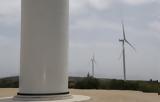Greece’s Renewable Sector Faces Challenges as Energy Oversupply Deepens
In just the first half of 2025, curtailments of renewable energy output in Greece reached 1,000 gigawatt-hours, a figure significantly higher than during the same period in 2024.
Greece’s renewable energy sector is facing mounting pressure as power curtailments—forced reductions in electricity production—are
In just the first half of 2025, curtailments of renewable energy output in Greece reached 1,000 gigawatt-hours, a figure significantly higher than during the same period in 2024. This surge reflects a growing problem of energy oversupply clashing with the grid’s limited capacity to absorb it. As a result, there has been a steady rise in the number of hours each day when electricity prices fall to zero, leaving many projects—especially those without long-term contracts—exposed to extreme volatility and without guaranteed income.
The financial consequences for producers are immediate. Energy that cannot be delivered to the grid or is sold at zero market value generates no return. For projects operating under a merchant model or selling on the day-ahead market without the protection of power purchase agreements, the risks are even more pronounced. The lack of revenue predictability makes long-term financial planning nearly impossible, undermining investor confidence.
These issues are now spilling over into the banking sector. Greek and international financial institutions are becoming increasingly reluctant to finance renewable projects that lack stable, contracted revenue streams. Traditional project finance models, which rely on consistent and forecastable cash flows, are being upended by the current environment of curtailments and volatile pricing.
According to banking executives, the risk profile of renewable projects in Greece has shifted so significantly that new business models are now essential. Developers are being urged to adopt more flexible strategies, which may include entering the energy trading and supply markets to hedge against revenue shortfalls.
This challenging environment is accelerating consolidation in the Greek renewables market. Only vertically integrated energy companies—those involved in both production and retail supply, or those active in energy trading—are now able to withstand the shocks and uncertainties. For independent producers without such capabilities, survival is becoming increasingly difficult, potentially limiting competition and slowing the pace of renewable development in one of Europe’s sunniest and windiest regions.
#ENGLISH_EDITION- Δημοφιλέστερες Ειδήσεις Κατηγορίας Ειδήσεις
- Ολόκληρη η προκήρυξη για 450 μόνιμες θέσεις σε Μουσεία και Αρχαιολογικούς χώρους
- Χάος στο Κρεμλίνο: Πανικόβλητος ο Πούτιν απολύει το δεξί χέρι του
- Αγρίνιο: Πώς σώθηκε η κοπέλα - Δεν φορούσε ζώνη, είχε ανοικτό παράθυρο- Τα τελευταία λόγια του Θανάση
- Φριχτό θέαμα στην Ινδονησία: Βίντεο δείχνει αγρότη νεκρό μέσα στην κοιλιά τεράστιου πύθωνα
- «Καταστροφή εκατονταετίας»: Έλληνας από το Τέξας στο ΕΡΤNews για τις πλημμύρες με 82 νεκρούς και δεκάδες αγνοούμενους
- Γιασικεβίτσιους: «Τώρα μπορούν να το... βουλώσουν όλοι για έναν χρόνο;» - Δείτε βίντεο
- Βόλος-Αθήνα σε 31 λεπτά - Προσθαλασσώθηκε το πρώτο υδροπλάνο
- Ένα γέλιο θα τους θάψει…
- Αυτό είναι το ελληνικό νησί που λαυτρευουν οι Ιταλοί solo travelers
- Αλ. Καζαμίας στο Πρώτο για ΟΠΕΚΕΠΕ: Δεν αποκλείω κατάθεση και νέας προανακριτικής με διευρυμένο κατηγορητήριο συμπληρωμένο και από το πρόσωπο του πρωθυπουργού (audio)
- Δημοφιλέστερες Ειδήσεις Dikaiologitika
- Greece’s Renewable Sector Faces Challenges as Energy Oversupply Deepens
- Ο Παναθηναϊκός έχει τον Βαλαντσιούνας για σύμμαχο: «Δεν διαπραγματεύεται με τους Νάγκετς, φεύγει»
- Meteo: 8 νομοί υπό ακραία ξηρασία - Ο ξηρότερος Ιούνιος των τελευταίων ετών
- Hellenic Defense Systems Signs €24 Million Deal with Slovak MSM Group Amid Questions Over Past Pricing
- Καραμανλής σε Προανακριτική: Δηλώνει ξανά αθώος - Ζητά παραπομπή στο Δικαστικό Συμβούλιο
- «Σοκ» στην ΑΕΚ: Εκτός ο Καλοσκάμης για 2,5 με 3 μήνες!
- O Μάικλ Ντάγκλας αποσύρεται από την υποκριτική: Ο λόγος που έπρεπε να σταματήσει

- Τελευταία Νέα Dikaiologitika
- Greece’s Renewable Sector Faces Challenges as Energy Oversupply Deepens
- Meteo: 8 νομοί υπό ακραία ξηρασία - Ο ξηρότερος Ιούνιος των τελευταίων ετών
- Hellenic Defense Systems Signs €24 Million Deal with Slovak MSM Group Amid Questions Over Past Pricing
- O Μάικλ Ντάγκλας αποσύρεται από την υποκριτική: Ο λόγος που έπρεπε να σταματήσει
- «Σοκ» στην ΑΕΚ: Εκτός ο Καλοσκάμης για 2,5 με 3 μήνες!
- Ο Παναθηναϊκός έχει τον Βαλαντσιούνας για σύμμαχο: «Δεν διαπραγματεύεται με τους Νάγκετς, φεύγει»
- Καραμανλής σε Προανακριτική: Δηλώνει ξανά αθώος - Ζητά παραπομπή στο Δικαστικό Συμβούλιο
- Γιάννης Περπερίδης στο Dnews: «Αφού το έγραψε η Τεχνητή Νοημοσύνη, πρέπει να είναι σωστό»
- Χωρίς ενεργό μέτωπο η φωτιά που πέρασε από την Αλβανία στη Θεσπρωτία
- Γιώργος Λιάγκας: Αυτοί θα «κάθονται» στο νέο πάνελ - Μία ώρα νωρίτερα τη νέα σεζόν το «Πρωινό»
- Τελευταία Νέα Κατηγορίας Ειδήσεις
- Φωτιά σε αγροτοδασική έκταση στη Λέσβο – Κινητοποιήθηκαν αεροσκάφη και ελικόπτερα
- Συμπλοκή ανηλίκων σε προαύλιο δημοτικού – Δύο τραυματίες
- Δείκτης φόβου: Μειώθηκε τον Ιούνιο – Τι δείχνουν τα στοιχεία του ΚΕΠΕ
- Κομισιόν: Φον ντερ Λάιεν – Τραμπ «αντάλλαξαν απόψεις σε καλό κλίμα»
- Μαρινάκης κατά Τσίπρα για το συμβούλιο των πολιτικών αρχηγών: «Η Ιστορία δεν ξαναγράφεται»
- Φωτιά τώρα στον Αυλώνα Λέσβου – Σηκώθηκαν και εναέρια μέσα
- Εξαρθρώθηκε σπείρα διαρρηκτών που άδειαζε ταμεία σε Γλυφάδα και Κορωπί – Βίντεο από τη δράση τους
- Νέα υποβρύχια: Το σχέδιο για να διατηρηθεί το προβάδισμα στον βυθό
- Τόμας Μπάρακ: Οι ΗΠΑ ικανοποιημένες με την απάντηση του Λιβάνου για τη Χεζμπολάχ
- NEW ERA x ΛΕΞ | “Θ”: Ένα καπέλο για την πόλη, την κουλτούρα και την ιστορία



